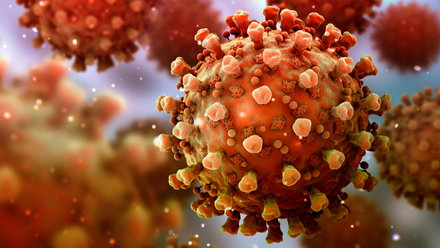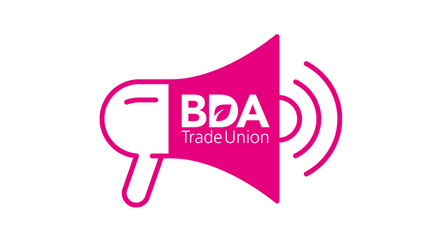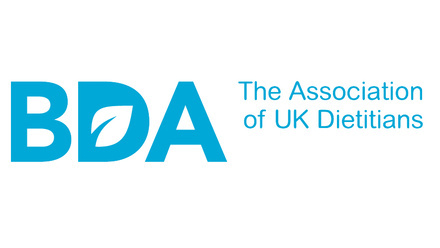Introduction
Leadership & service delivery planning
Most renal units across the UK are making provisions for the likelihood of less frequent dialysis, although this will be assessed on an individual basis according to capacity. This will place significant pressure on all multidisciplinary team (MDT) members and has implications for renal dietitians.
The RNG strongly recommends that planning for changes to dialysis schedules occurs in collaboration with renal dietitians.
In order to maintain safety of staff, the RNG recommend:
- Enabling home working where possible in accordance with local NHS policy (for example telephone clinics, remote renal replacement therapy reviews)
Service provision with reduced workforce
The renal dietetic workforce is likely to be reduced for various reasons, due to staff self-isolation, or staff re-deployment to other areas such as critical care or parenteral nutrition.
The RNG recommend:
- Agreeing local criteria for prioritisation of both new and review patients requiring dietetic input, including timeframes for intervention, dependent on local capacity
- Ensuring that healthcare professionals who need to self-isolate but are well can continue to support the service by:
- enabling telephone or video consultations with patients where possible, for example telephone clinics and renal replacement therapy reviews
- enabling telephone or video attendance at multidisciplinary team meetings
- identifying patients who are suitable for remote monitoring and follow up, and those who are vulnerable and need support
- writing or updating patient-facing documentation, prioritising that relating to COVID-19
- updating local guidance for renal dietetic provision, prioritising that related to COVID-19
Patient communication
Patients receiving renal dialysis have been classified as being clinically extremely vulnerable to coronavirus. The government therefore advises all dialysis patients to stay at home and avoid all face-to-face contact, or shield, at the present time, wherever this is clinically safe and appropriate. However, in many circumstances, renal dialysis patients will need to continue attending hospital or a clinic to receive dialysis. Ensuring their safety when they must attend hospital is vital, and as such all face to face contact with patients should be avoided unless essential.
The RNG recommend that face-to-face contact is minimised by:
- offering telephone or video consultations to all outpatients. This may include working from home according to local NHS policy
- avoiding all non-essential follow up such as 6 monthly routine reviews for dialysis patients
- avoiding face to face contact with patients unless in exceptional circumstances (for example renal inpatients who are artificially fed), to reduce footfall on dialysis units, satellite units and renal inpatient wards
- where patients are unable to communicate via telephone or videoconference, attempts should be made to provide intervention via an advocate for the patient, before considering direct face to face contact with the patient
MDT communication
We acknowledge that remote review of patients hold limitations and can make ascertaining the true clinical picture challenging. It is therefore imperative that renal dietitians and renal dietetic assistants continue to communicate with the renal MDT regarding the management of all renal patients.
Decisions regarding this should be made as per local guidance, but could include:
- Attendance at morning handover rather than ward rounds
- Remote dialysis review meetings or MDT meetings rather than walk round reviews
- Virtual MDT meetings
Nutritional management
Changes to dialysis schedules
For patients whose dialysis or treatment schedule is not affected, the RNG recommend:
- that they continue to be managed according to appropriate local, national and international nutritional guidelines
- face to face contact should be avoided where possible
- remote review of patients should be considered, unless this may compromise patient care
NICE guidance (2020) states that dialysis units should develop individualised plans for patients so that their dialysis schedule can be reduced safely if that becomes necessary, to enable the on-going operational delivery of dialysis in the unit or at home if there are constraints because of widespread COVID‑19.
Less frequent dialysis will lead to reduced removal of potassium and fluid on a weekly basis, with longer gaps for the build-up of these between dialysis sessions. For patients whose dialysis schedule is reduced, the following guidance should be considered, to minimise risk of potential complications associated with hyperkalaemia and fluid overload.
We acknowledge that this anxious and challenging time for patients is likely to lead many to feelings of being overwhelmed. Furthermore, practical issues with food supply may arise. Patients who are classified as clinically extremely vulnerable are able to access the government’s support offer, ensuring they have access to food, medicines and basic supplies.
Renal dietitians should be careful to assess the patient’s ability to receive dietary advice and focus strongly on prioritisation of crucial dietary guidance, whilst using a pragmatic approach.
All nutritional guidance should be supported with appropriate written or pictorial information in accordance with local policy or guidelines. The Renal Nutrition Group has examples of patient information which can be utilised as required.
Potassium
The RNG recommends:
- Pre-dialysis serum potassium levels should be managed according to local policy, but in the absence of this suggest that levels should ideally be ≤5.5mmol/l, and no higher than 6.0mmol/l
- The frequency of monitoring for pre-dialysis serum potassium levels should be increased according to local policy
- Non-dietary causes of high serum potassium should be considered and treatment provided according to local policy
- Dietary advice should be provided to those patients with pre-dialysis serum potassium levels ≥5.5mmol/l, aiming to reduce dietary potassium intake to 50-70mmol per day, or no more than 1mmol/kgIBW/day where possible
- Local policies should address the prescription of potassium binders to allow the frequency of dialysis to be reduced, and the potential for their use should be explored on an individual patient basis
- Consider reducing potassium contribution from protein foods by advising patients to reduce their dietary protein intake as detailed below
Fluid
The RNG recommends:
- Local policies should address the use of fluid restriction to allow the frequency of dialysis to be reduced.
- Inter-dialytic fluid weight gain (IDWG) should be <2.5kg or <5% of dry weight, in accordance with local policy
- Dietary advice should be provided on reducing fluid intake to no more than 500-750ml/d in anuric patients, or 500mls plus daily urine output, in accordance with local policy.
- Individual patient education should include discussing the potential consequences of non-compliance with a fluid restriction.
- Dietary advice should be provided on the importance of reducing dietary salt intake to no more than 5g per day.
- Close communication with the medical and nursing team regarding fluid management targets and fluid allowances
Protein
The RNG suggests:
- Consider advising patients to reduce dietary protein intake to 0.8-1g/kg/d, particularly in patients who are complaining of uraemic symptoms. The potential benefits and risks of protein restriction should be considered on an individual basis, dependent on current nutritional status and risk of protein energy wasting.
- Close monitoring of nutritional status, and adjustment of recommendations for dietary protein intake as necessary
Maintaining Nutritional Status
Dialysis patients are at increased risk of protein energy wasting, therefore close monitoring of nutritional intake and changes to nutritional status are vital to ensure that nutritional status is not compromised.
The RNG suggests:
- Nutritional assessment and care planning is conducted in accordance with appropriate local, national and international guidelines
- Ensure that patients who are identified as nutritionally at risk by nutritional screening (e.g. Renal iNut) or Subjective Global Assessment, or those who are already receiving nutritional supplements at home, continue to be assessed by the renal dietitian
- Close monitoring of nutritional intake and changes to nutritional status, and where nutritional status is felt to be compromised, appropriate adjustment of nutritional care plans where necessary
Eating on haemodialysis
For haemodialysis (HD) patients, eating and drinking during HD contributes significantly to their overall energy and protein intake, and therefore may improve nutritional status, as well as reducing inflammation, enhancing health-related quality of life, increasing patient satisfaction, and improving survival (Kistler et al 2018). It is common practice in many UK HD centres to either offer food and drink or allow patients to bring their own for consumption during their HD treatment. Although there is no evidence available to suggest or support that the removal of face masks to eat and drink during dialysis will increase the risk of transmitting COVID-19, some other European countries are now advising patients not to eat or drink during HD treatment, but instead to eat either before or after HD.
The RNG, together with the British Renal Society (BRS), Renal Association (RA), Kidney Care UK (KCUK) and National Kidney Federation (NKF) have produced separate guidance “Eating during haemodialysis and COVID-19” which can be found on the RNG pages of the BDA website, or on the British Renal Society website.
In summary, this suggests:
- Each dialysis unit should discuss at a local level with their infection control team and provide relevant information to patients as required. Full consideration needs to be given to both the time spent during dialysis and the time spent waiting for transport, as well as the journey itself.
- As this is a novel virus with limited evidence to guide recommendations on eating and drinking, the RNG is not in a position to recommend whether patients do or do not eat or drink during dialysis. However, patients should be aware that there is a theoretical risk of transmission if they remove their mask in order to eat and drink. Therefore the following precautions could be taken:
- If patients decide to eat or drink during dialysis, they can remove their mask, but must immediately replace it after eating or drinking. It is particularly important when the mask is off, that patients ensure that they keep at least 2 metres distance between other patients and all other people/staff on the unit. Alcohol gel must be available to patients to sanitise their hands before and after eating and drinking.
- If patients decide not to eat or drink during HD, careful consideration should be made for patients who have diabetes, are elderly, frail, nutritionally compromised, or have difficulty accessing food and have any other relevant clinical or social complications.
- Patients who are nutritionally at risk or those who are already receiving nutritional supplements at home have access to and are assessed by a renal dietitian.
Delayed start to dialysis for new incident dialysis patients
For new incident dialysis patients who encounter a delayed start to dialysis treatment, the RNG recommend that the following guidance for nutritional advice and monitoring is considered.
Moderate protein
The RNG suggests:
- Consider advising patients to reduce dietary protein intake to 0.8-1g/kg/d, particularly in patients who are complaining of uraemic symptoms. The potential benefits and risks of protein restriction should be considered on an individual basis, dependent on current nutritional status and risk of protein energy wasting
- Close monitoring of nutritional status, and adjustment of recommendations for dietary protein intake as necessary
Potassium
The RNG recommends:
- Pre-dialysis serum potassium levels should be maintained within acceptable limits according to local policy
- The frequency of monitoring for serum potassium levels should be increased according to individual patient need and local policy
- Non-dietary causes of high serum potassium should be considered and treatment provided according to local policy
- Dietary advice should be provided to those patients with raised serum potassium levels, aiming to reduce dietary potassium intake to 50-70mmol per day, or no more than 1mmol/kgIBW/day where possible
- Local policies should address the prescription of potassium binders to allow the initiation of dialysis to be delayed, and the potential for their use should be explored on an individual patient basis
Fluid
The RNG recommends:
- Local policies should address the use of fluid restriction in patients presenting with fluid overload, to allow delayed start to dialysis treatment
- Individual patient education should include discussing the potential consequences of non-compliance with a fluid restriction
- Dietary advice should be provided on the importance of reducing dietary salt intake to no more than 5g per day
- Close communication with the medical team regarding fluid management targets and fluid allowances
Critical Illness
For renal patients who become critically ill and require critical care, the RNG recommend following appropriate guidance, e.g. Critical Care Specialist Group guidelines
Acute Kidney Injury
The incidence of Acute Kidney injury (AKI) in hospitalised patients with COVID 19 is relatively low (29%), in comparison to severe lung injury which requires mechanical ventilation (71%) (Malha et al 2020). For patients who develop AKI, either with or without pre-existing kidney disease, the RNG recommend following appropriate national and international guidelines for nutritional management. For more information visit this link.
Additional Guidance & References
The RNG recommend that all renal dietitians keep up to date with guidance from other societies regarding professional practice during this time and medical and nutritional management of renal patients either with or without COVID-19, and health and wellbeing advice.
Additional guidance is available from a variety of sources, some of which include:
- National Institute of Health and Care Excellence
- Renal Association
- Kidney Care UK
- Renal Nutrition Group section of the BDA website
- Think Kidneys
- Public Health England
References
-
Jackson H.S., Maclaughlin H.L., Vidal Diez A, Banerjee D (2019). A new renal inpatient nutrition screening tool (Renal iNUT): a multicenter validation study. Clinical Nutrition 38 (5): 2297 – 2303
-
Kistler B.M., Benner D, Burrowes J.D., Campbell K.L., Fouque D., Garibotto G., Kopple J.D., Kovesdy C.P. , Rhee C.M., Steiber A., Stenvinkel P., Ter Wee P., Teta D., Wang A.Y. and Kalantar-Zadeh K. (2018). Eating During Hemodialysis Treatment: A Consensus Statement From the International Society of Renal Nutrition and Metabolism J Ren Nutr 28(1): 4-12
-
Malha L, Mueller FB, Pecker MS, Mann SJ, August P, Feig PU (2020). COVID-19 and the Renin-Angiotensin System, Kidney International Reports doi: https://doi.org/10.1016/ j.ekir.2020.03.024.
- NICE (2020). COVID-19 Rapid Guideline: Dialysis Service Delivery. Available at https://www.nice.org.uk/guidance/ng160







